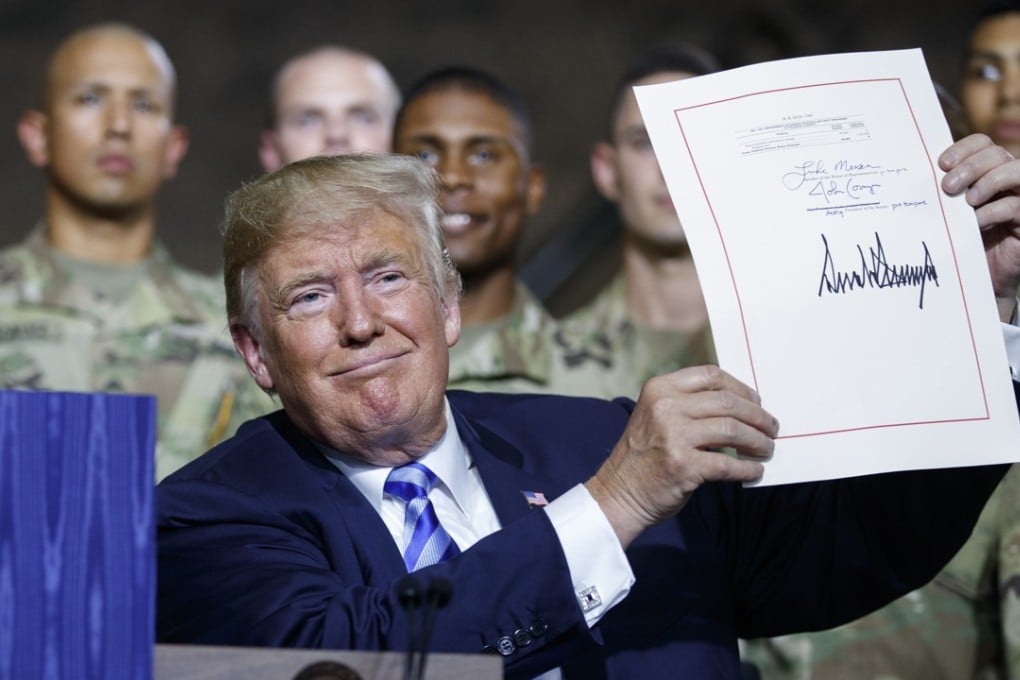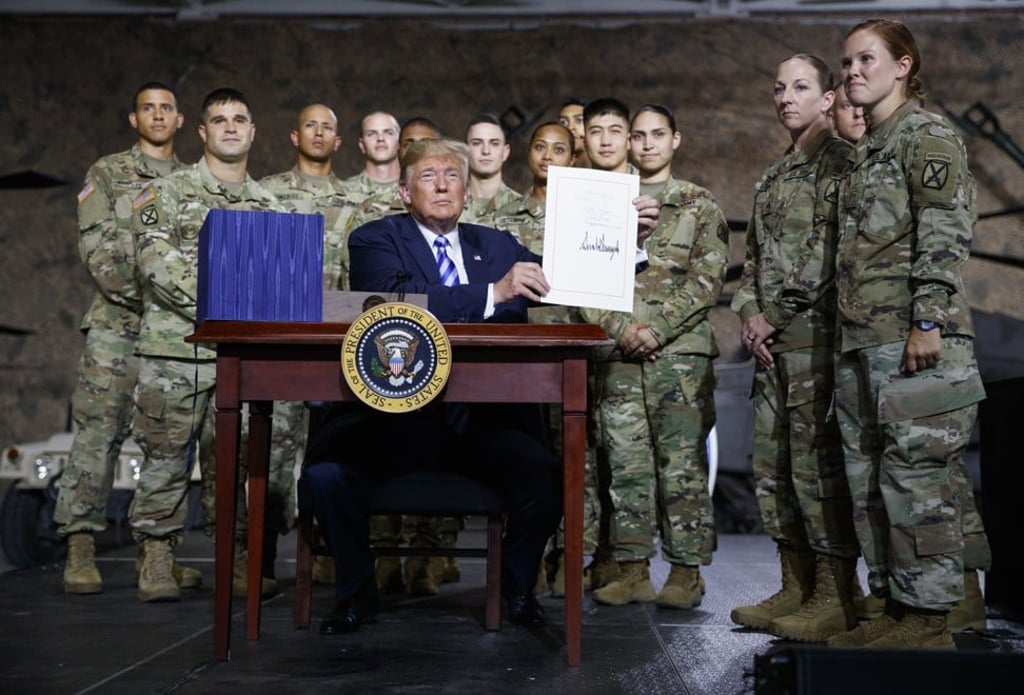Beijing ‘strongly dissatisfied’ as Donald Trump signs defence act upping US support for Taiwan and scrutiny of foreign companies
Foreign ministry calls for ‘objective perspective’ from Washington after it says strategic competition with China is a ‘principal priority’

Beijing has condemned US President Donald Trump for signing an act committing to stronger military support for Taiwan and placing Chinese companies under closer scrutiny, saying the move will damage the countries’ ties.
In a statement released on its website, the foreign ministry said Beijing was “strongly dissatisfied” with Trump signing the defence act.
It said the US should “abandon its cold war mindset and zero-sum philosophy and view China and Sino-US relations in an objective perspective”.
It urged the US not to implement the “negative contents related to China so as not to cause damages in Sino-US relations and bilateral cooperation in key areas”.
In a separate statement, China’s defence ministry condemned the act for its “cold war mentality”.
